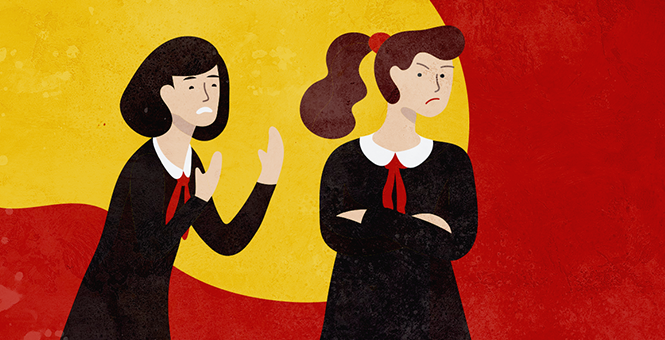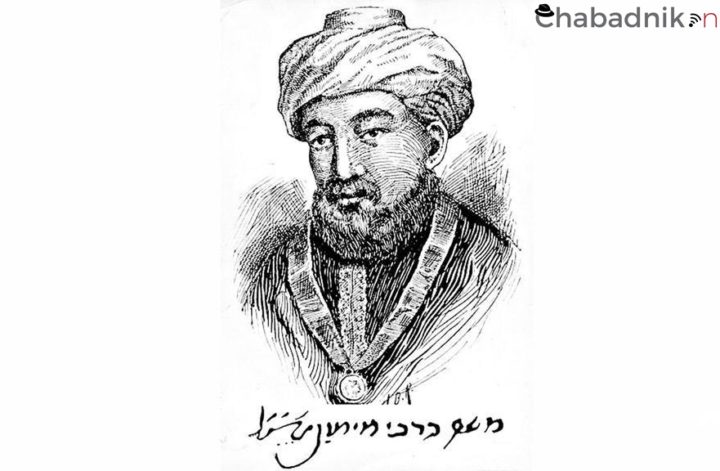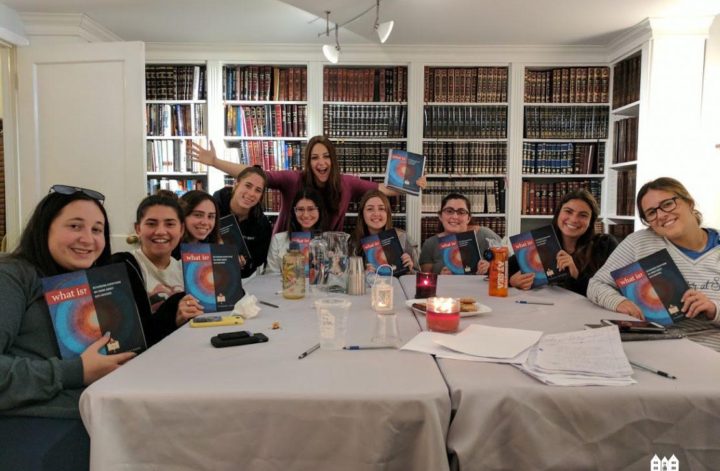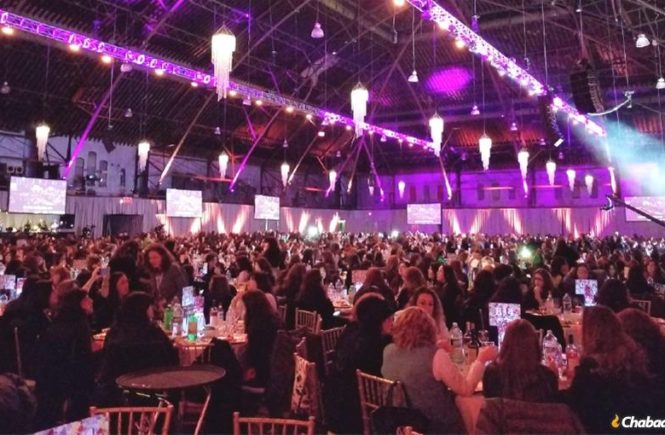was born in another world, in a country that is no longer on the map. In a way, I am still a Soviet child transitioning into the world of mysterious Hebrew texts, holy Torah scrolls, the chanting of prayers and the cycles of the Jewish year.
This week, when I walked into the synagogue on Shabbat, I felt proud. Two of my Soviet- born Many of my friends gifted themselves with Jewish namesfriends were there to receive Jewish names during the Torah reading. Since very few of our parents had the opportunity to perform brit milahs or baby-naming ceremonies for us, later in life many of my friends decided to gift themselves with proper Jewish names.
When I first became observant, I took on the name Sara Ester: Sara for my great-grandmother, and Ester for the queen whose strength saved the Jewish people in the Purim story.
I was particularly overjoyed that Shabbat because my friends’ Jewish name ceremony took place during the bar mitzvah of another family also from the former Soviet Union. The Communist government invested so much effort into eradicating religion, yet we, the eternal nation, are still here, reciting holy words of Torah.
Being Jewish in the Soviet Union was more of a diagnosis than an identity. We were singled out for discrimination, anti-Semitism, and hostility, even though most Jewish families contributed greatly to Soviet society. The Jewish people, often called “the People of the Book,” held educational values in the highest esteem. Many earned prominent degrees, despite the roadblocks placed before them. Both of my grandmothers were doctors, devoted to the ethics of their profession.
I grew up in the same apartment building as one of my grandmothers, Zinaida Davidovna Shur, a nine-story building that housed hundreds of families. The apartments were tiny with either one, two, or three bedrooms, and often more than one generation lived together. The families shared communal rooms, and the children would sleep on folding cots. There was little space, no privacy, and no room for self-expression.
Most of our neighbors knew each other, even though hundreds of people occupied one building. They also all knew that my family was Jewish.
Soviet passports had a required section for nationality. Parents often tried to protect their young children from the terrible “decree” of being born Jewish by withholding this knowledge for them for as long as possible. But there was nowhere to hide. Passports were required in our everyday lives, which meant that our Jewishness was evident at every turn. We were clearly singled out as a weak link, as “others” by Communist society.
I was born in a rather prominent family; both of my parents worked in universities, and my father held a Ph.D. My grandmother was a prominent doctor in our hometown of Saratov, with many people seeking and respecting her professional advice. The neighbors knew her as a kind and sensitive person, and a very knowledgeable physician.
One night in the winter of 1976, my grandmother was woken by pounding on her apartment door. Since it was 3 a.m., she suspected that it was a medical emergency. At her door, stood a neighbor whose 3-week-old daughter had been drinking from her bottle when her mother fell asleep. Her baby kept sucking at the empty bottle, filling her lungs with air. My grandmother used her medical skills to resuscitate the child, literally saving her life with her swift reaction .

I was born that same year, and this girl became my best friend. She came to my apartment every morning so we could walk to school together, and we returned home together every afternoon. Her parents often mentioned their gratitude towards my grandmother.
“Zinaida Davidovna saved our daughter,” they would tell me frequently.
Yet this illusion of appreciation was not to last, and the friendship itself was doomed from the start.
I was an innocent child, striving to fit into the mold. I identified as a Soviet girl, marching to Communist songs and loving its propaganda, just like everyone else.
One day, when I was 10, my friend came to pick me up for school and informed me that this would be her last time walking with me. I was confused and pressed her for an explanation.
She looked right into my eyes and simply said, “I will no longer spend my time with you because you are a filthy kike. My parents made me pay my dues for what your grandmother did. But now I am done, and I will no longer be your friend.”
Even though I did not understand what she was saying, I understood instinctively that the friendship was truly over. It was clear that I was somehow different and no one wanted to associate with me. Her terrible and deeply offensive words rang in my ears.
We walked the rest of the way in silence. After school, I ran into our apartment barely holding back my tears. What was I guilty of? What did her words mean? Was I dirty? Did I need a bath? After all, she had called me filthy. I was heartbroken.
Thankfully, my parents were home. They sat me down in the kitchen and attempted to explain, “‘Filthy Jew’ meant that we are not like the rest of the Soviet citizens.” My father’s words were cryptic and confusing. “To others, we are like visitors from another place. Chosen. Disliked. Persecuted. Never fully trusted.”
I didn’t understand. How are we different? Chosen by whom? Tears poured down my face. Why was my friend angry with me? What did I do? I was inconsolable.
My father continued, “You did nothing wrong. It is just who we are, who your ancestors were. You are special.”

With my grandfather.
Special? It surprised me that he used this word
I should have been crushed by my friend’s betrayal. After all, if the family whose child was saved by my grandmother was unwilling to accept me, what possible future did I have? Yet I wasn’t. I felt sad, lonely and heartbroken, but also intrigued by my father’s explanation.
I wanted to know about those mysterious ancestors of mine who made me so unfit for Soviet society. I was different and perhaps that could never be changed. Still, I felt that there must be a place for people like me. I felt a deep yearning to find out about my secret roots and learn about my identity.
For many years, this quest hid deep within my consciousness.
In 1989, my family immigrated to the United States. We were one of the first to leave Saratov as the Communist regime crumbled. The walls of the invisible jail came crashing down, and I was now free to allow my inner voice.
As I searched for my place among Jewish people, I discovered that we were entrusted with a torch of G‑dly light. My father was right; I am, in fact, special. I am here on a mission to illuminate the world with compassion, authenticity, kindness, meaning, justice, respect, and dignity.
As I stood in the synagogue, as my friends received their chosen Jewish names, listening to the words of congratulations in familiar Russian, I struggled to hold back tears of pride and gratitude.




